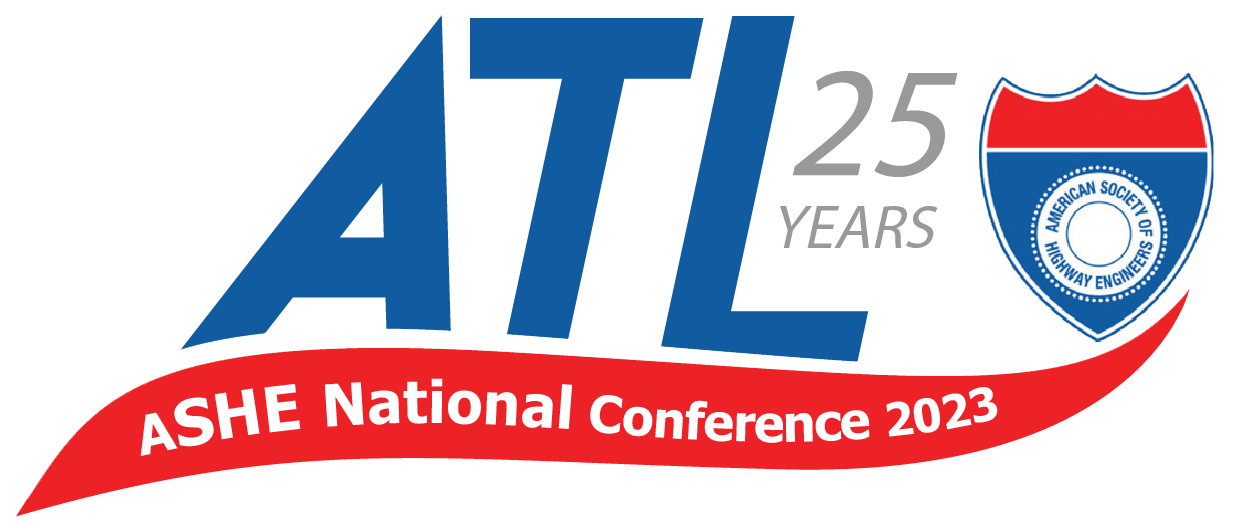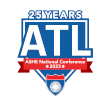
Technical Session #3B – Safety
Topic: Atlanta Regional Commission (ARC) Regional Safety Strategy
ARC’s Regional Safety Strategy atlantaregional.org
Panelist:
Regan Hammond, AICP VHB, Transportation Systems Director
Frank Gross, PhD, PE VHB, Safety Practice Leader
Tejas Kotak, ARC, Senior Planner
Panelists will share techniques for systematic evaluation of historical crash data and roadway characteristics, the proven countermeasures for reducing crash risk, and the strategies developed for ARC’s Regional Safety Strategy to guide investment and improve safety outcomes in the Atlanta region.
VHB and the Atlanta Regional Commission (ARC) developed the first Regional Safety Strategy for the 20+ county metropolitan Atlanta region. This plan will help ARC and its partners respond to trends in transportation safety outcomes and build a safe transportation system for all users of all modes. The strategy also addresses federal and state regulations (including design guidance and performance management goals, measures, and targets) and promotes equitable outcomes. This strategy’s ultimate objective was to include implementable recommendations for how ARC and its partners can improve safety performance in the region relating to long-range planning for private, public, and active transportation modes.
Utilizing data-driven analyses (both hotspot and systemic), the strategy identified issues and specific actions that can be implemented to improve safety. The data-driven approach emphasized research and predictive modeling to inform transportation safety policies, practices, and infrastructure. Examples of the data the VHB Team analyzed include peer-reviewed studies and best practices from cities across the U.S., crash data, roadway characteristic data, traffic volumes and exposure, and transit ridership data.
The strategy’s recommendations for safer streets will be used by various metropolitan transportation planning agencies and community organizations. Recommendations will prioritize infrastructure characteristics and engineering interventions, including walkway, bikeway, and roadway designs; intersection or crossing designs; traffic calming and speed management; signage and signalization; freight and curbside logistics; and other infrastructure as needed.
Topic: Ocoee Corridor K – Targeted Approach
Speakers: Rachel R. Gentry, PE Tennessee Department of Transportation (TDOT) Region 2 Project Development & Brad Winkler, PE STV
Corridor K (US Highway 64) is part of the Appalachian Regional Commission’s (ARC) Appalachian Development Highway System (ADHS) as designated by Congress in 1965. The corridor runs between Cleveland, TN and Dillsboro, NC, including a 20-mile portion in Polk County, TN. This portion of the corridor cuts through the Ocoee River Gorge alongside lake Ocoee and the Ocoee River and is a National Scenic Byway.
The existing two-lane roadway does not meet current design standards and contains numerous roadway deficiencies and safety issues including limited shoulder widths, a lack of guardrails, substandard horizontal curves, and inadequate site distances. Further, the corridor has been riddled with rockslides and unstable rock outcroppings.
For several decades, the Tennessee Department of Transportation considered and evaluated numerous alternatives in environmentally sensitive areas from new bypasses to comprehensive widening. No option seemed to have widespread support.
For these reasons, TDOT has decided to implement targeted safety and rockslide mitigation solutions. This approach will focus resources on the most critical areas (target locations) along the corridor. The targeted improvements include roadway widening for shoulders and/or turn lanes, guardrails, rockfall catch fences, retaining walls, horizontal curve corrections, intersection improvements, and recreational access improvements.
The design of the proposed improvements along the corridor are being developed in a coordinated manner with TDOT, FHWA, ARC, U.S. Forest Service, TVA, and other public and private stakeholders. The goal of the project is to improve the safety and efficiency of the corridor through the Ocoee River Gorge, while providing additional economic development opportunities and maintaining its natural beauty.


Leave A Comment
You must be logged in to post a comment.